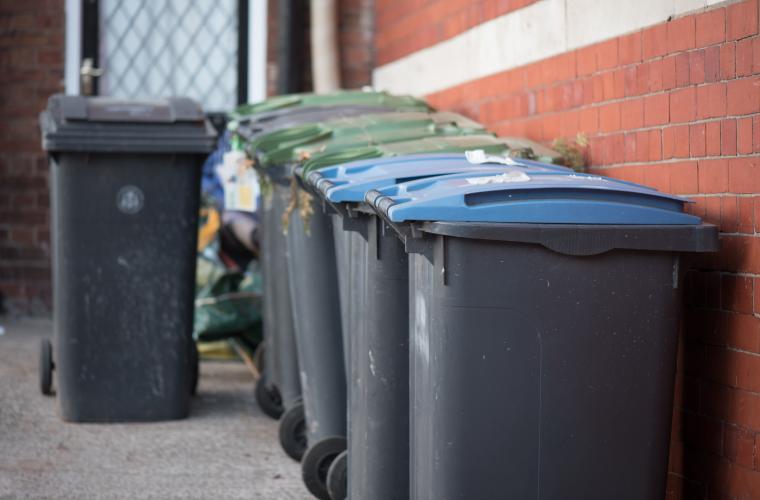Futures Forum: County Council and plastic pollution >>> "the Council will use its position and responsibility to raise awareness of the issues surrounding single-use plastics" >>> BUT the Council "does not hold information" on how its reprocessors deal with its plastic waste
Perhaps it could do more - but there is the problem of producers of plastic waste not exactly coming clean about the issues:
Futures Forum: Plastic recycling and greenwashing
And today's news is full of what one of those issues is:
Only one third of UK’s plastic food packaging is recyclable, study finds | The Independent
TWO THIRDS of plastic food containers we set aside are burnt or sent to landfill | Daily Mail Online
The Local Government Association is fed up with having to deal with a 'smorgasboard' of plastics:
Two-thirds of plastic in packaging pots and trays is unrecyclable
Manufacturers must scrap the “smorgasboard” of plastics which are used in packaging for key foods so that councils can reduce waste sent to landfill and increase recycling, the Local Government Association is warning today.

LGA analysis suggests that only a third of plastic used by households is able to be recycled. It found 525,000 tonnes of plastic pots, tubs and trays are used by households a year but just 169,145 tonnes of this waste is able to be recycled.
The LGA is calling for manufacturers to work with councils and develop a plan to stop unrecyclable packaging from entering the environment in the first place.
Packaging for food can be made from a variety of polymers – molecules which make up plastic – which need to be separated out to remove “low grade” and non-recyclable polymers such as polystyrene.
For example, fruit and vegetable punnets are typically made from three different types of polymers including polystyrene. Some plastic packaging is made from a combination of polymers, as different plastics are used in the body and lid of a yoghurt pot.
In one example of particularly inefficient packaging, microwave meals are often encased in predominately black plastic material for aesthetic reasons.
However, black is the only colour that cannot be easily scanned by recycling machines and sorted, meaning this unnecessarily hinders the recycling process.
In addition to developing a plan that ensures recyclable packaging is used where possible, councils are calling on the Government to consider a ban on low-grade plastics, and for producers and manufacturers to contribute to the cost of collection or disposal.
Councils have done all they can to tackle this issue, with 99 per cent of councils collecting plastic bottles for recycling and 77 per cent collecting pots, tubs and trays, but the inclusion of these challenging polymers in so much packaging is making it extremely difficult for councils.
In order to increase recycling rates, it’s essential that manufacturers prevent materials entering the environment which hamper recycling efforts. Alternatives to the packaging saturated in polymers which are challenging to recycle could include cardboard, paper or a recyclable version of pots. For instance, if margarine tubs were made out of the same material as plastic water bottles, they would be recyclable.
Cllr Judith Blake, LGA Environment spokesperson, said:
“It’s time for manufacturers to stop letting a smorgasboard of unrecyclable and damaging plastic flow into our environment. Some of the measures that could help us reduce landfill and increase recycling are no- brainers; for instance, microwave meals should be stored in a container that is any other colour than black, to enable quicker recycling.
“We’ve been calling for producers of unrecyclable material to develop a plan to stop this from entering the environment for years. That needs to happen urgently, but the Government should now consider banning low-grade plastics, particularly those for single use, in order to increase recycling.
“If manufacturers don’t want to get serious about producing material which can be recycled and protecting our environment, then they should at least contribute towards the cost that local taxpayers have to pay to clear it up.
“We need an industry-wide, collaborative approach where together we can reduce the amount of material having an impact on the environment. But if industry won’t help us get there, then the Government should step in to help councils ensure we can preserve our environment for generations to come.”
Polymer Madness: Five Everyday packages that use unrecyclable plastic
1. Margarine and Ice Cream Tubs. This packaging contains the polymer Polypropylene, which is extremely difficult to recycle. An alternative to this could be making them out of plastic used for water bottles which can be easily recycled.
2. Microwave meal and meat packaging. These materials can be re-sorted and recycled easily, but need to be sorted using an optical scanner beforehand. The optical scanner can sort this material from any other colour other than black, yet manufacturers intentionally choose to use black packaging for aesthetic reasons. Changing the colour of these trays could lead to a real increase in recycling.
3. Fruit and Vegetable punnets. Though simple in design, these punnets are complex in construction, with three polymers used in the construction of them. Councils are calling for a simpler design using recyclable materials.
4. Yoghurt pots use a mixture of two polymers, Polypropylene and Polystyrene, which are difficult to recycle. Some companies now use yoghurt pots made out of polyethylene terephthalate - the same material that is used for plastic bottles, making them easily recyclable.
5. Bakery goods trays. The lining which is used to house cakes and baked goods contains two difficult-to-recycle polymers, polyethelene terephthalate and polystyrene. More recyclable materials are available to store baked goods.
Two-thirds of plastic in packaging pots and trays is unrecyclable | Local Government Association
.
.
.

No comments:
Post a Comment